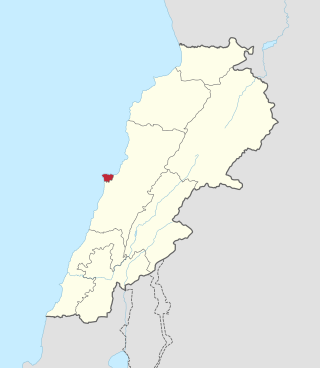Jund al-Sham is or was the name of multiple Sunni Islamic jihadist militant groups.

Terrorism in Saudi Arabia has mainly been attributed to Islamic extremists. Their targets included foreign civilians—Westerners affiliated with its oil-based economy—as well as Saudi Arabian civilians and security forces. Anti-Western attacks have occurred in Saudi Arabia dating back to 1995. Saudi Arabia itself has been accused of funding terrorism in other countries, including Syria.
Terrorism in Syria has a long history dating from the state-terrorism deployed by the Ba'athist government since its seizure of power through a violent coup in 1963. The Ba'athist government have since deployed various types of state terrorism; such as ethnic cleansing, forced deportations, massacres, summary executions, mass rapes and other forms of violence to maintain its totalitarian rule in Syria. The most extensive use of state terrorism in the 20th century was during 1970s and 1980s, when Islamic uprisings across Syria where crushed through bloody campaigns of intense repression, culminating in the Hama massacre which killed around 40,000 civilians.

Qaa, El Qaa, Al Qaa, Qaa Baalbek or Masharih al-Qaa is a town in Baalbek-Hermel Governorate, Lebanon. A 2010 report stated that population of the settlement was 500, all Lebanese Maronites

A suicide attack is any violent attack, usually entailing the use of explosives, where the attackers have accepted their own death as a direct result of the attacking method used. Suicide attacks have occurred throughout history, often as part of a military campaign, and more recently as part of Islamic terrorist campaigns. Although generally not regulated under international law by themselves, many suicide attacks violate international laws of war such as perfidy or targeting civilians.

The Abdullah Azzam Brigades, or al-Qaeda in Lebanon, is a Sunni Islamist militant group, and al-Qaeda's branch in Lebanon. The group, which began operating in 2009, was founded by Saudi Saleh Al-Qaraawi and has networks in various countries, mainly in Egypt, Iraq, Syria, Jordan, the Gaza Strip and Lebanon.
The Lebanese–Syrian border clashes were a series of clashes on the Lebanon–Syria border caused by the ongoing Syrian Civil War.

The Iranian embassy bombing was a double suicide bombing that occurred in front of the Iranian embassy in Beirut, Lebanon on 19 November 2013. The two bombings resulted in 23 deaths and injured at least 160 others.
On 10 January 2015, nine people were killed and more than 30 wounded when two suicide bombers blew themselves up in a crowded café in Jabal Mohsen, Tripoli, Lebanon.

The Turkey–Islamic State conflict refers to a series of attacks and clashes between the state of Turkey and the Islamic State (ISIS), most of which is part of the spillover of the Syrian Civil War. Turkey joined the War against the Islamic State in 2016, after the Islamic State attacks in Turkey. The Turkish Armed Forces' Operation Euphrates Shield was partly aimed against the Islamic State and partly against the SDF. Part of the Turkish occupied zone in northern Syria, around Jarabulus and al-Bab, was taken from the Islamic State.

On 12 November 2015, two suicide bombers detonated explosives in Bourj el-Barajneh, a southern suburb of Beirut, Lebanon, that is inhabited mostly by Shia Muslims. Reports of the number of fatalities concluded that 43 people died directly from the detonation. Islamic State of Iraq and the Levant (ISIL) claimed responsibility for the attacks.
This article contains a timeline of events from January 2015 to December 2015 related to the Islamic State of Iraq and the Levant (ISIL/ISIS). This article contains information about events committed by or on behalf of the Islamic State, as well as events performed by groups who oppose them.
This is a timeline of events during the War in Iraq in 2016.
On 4 July 2016, four suicide bombs exploded in three locations in Saudi Arabia. One of these exploded in the parking lots of the Al-Masjid an-Nabawi, killing at least four people. The second and third suicide bombers targeted a Shia mosque in Qatif, but they failed to harm anyone but themselves. A fourth militant blew himself up after police tried to arrest him near the U.S. consulate in Jeddah. Two Saudi Arabian police officers were injured.
On 3 June 2019, a gunman killed four security members—two police officers and two soldiers—in Tripoli, Lebanon. The attacker was a recent member of the militant group Islamic State (ISIS), but no group claimed responsibility for the attack. The attack took place when security forces were dispatched to the city's streets to ensure citizen safety at the end of the Ramadan and Eid al-Fitr holidays. The attacker was identified by the authorities and the Lebanese army as Abdel Rahman Mabsout; he was a former ISIS member who had participated in the Syrian Civil War against the Syrian government. He was detained and tried for fighting for ISIS when he returned from Syria in 2016 but was released after a year in jail in late 2017.








